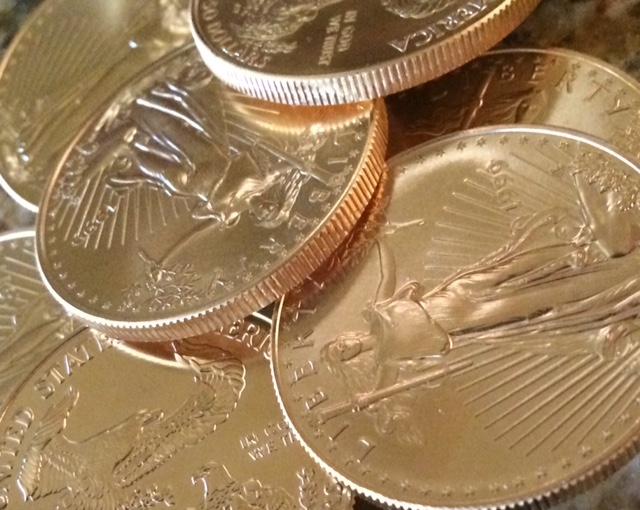
Gold Analyst
Contributor's Links:
Kelsey's Gold Facts
Kelsey Williams has more than forty years experience in the financial services industry, including fourteen years as a full-service financial planner. His website, Kelsey's Gold Facts, ...more
Kelsey Williams has more than forty years experience in the financial services industry, including fourteen years as a full-service financial planner. His website, Kelsey's Gold Facts, contains self-authored articles written for the purpose of educating and informing others about gold within an historical context. In addition to gold, he writes articles about inflation, interest rates, and the Federal Reserve. Kelsey is the author of two books: INFLATION, WHAT IT IS, WHAT IT ISN'T, AND WHO'S RESPONSIBLE FOR IT and ALL HAIL THE FED! To inquire about private consultations, public speaking, and interviews, please contact at email: kwilliams@kelseywilliamsgold.com For email alerts when new articles are posted, subscribe here.less




Latest Comments
Barrick And Buffett - A Different Perspective
Thank you!
Barrick And Buffett - A Different Perspective
I don't know. I think you might be right, but I'm sure he has input.
MMT - Variation On A Theme
Thanks for your comments. You are correct. I will have more to say about MMT and gold in my next article.
Gold Market Manipulation And The Federal Reserve
Correct. The higher price for gold is a reflection of the corresponding loss in purchasing power of the US dollar; which is an effect of the inflation created by the Fed.
Gold Market Manipulation And The Federal Reserve
Point 1: I am not at all "defending the Fed", as you say. Nor, did I use the word "relic" in reference to gold; or say anything similar to that. The Federal Reserve has destroyed the US dollar over the past century by continually expanding the supply of money and credit. That debasement of the US dollar has led to a decline of more than ninety-eight percent in its purchasing power. That decline in purchasing power is the reason for gold's higher price over time from $20 per oz. to $1700 per ounce. Point 2: Some gold investors are way too price conscious; nay, price-dependent is a more accurately descriptive term. They seem to be constantly in need of higher prices to justify their predictions for gold. Point 3: The purpose of the article is to point out how each time higher price expectations aren't met, the price predictors trot out the price suppression argument. If they understood and accepted the argument for everything it implies, then they would already own physical gold and they wouldn't have to defend their errant price predictions. Point 4: The case for gold is not about price. It is about value. Gold's value is in its use as money and its value is constant and stable. It is the original measure of value for all other goods and services. Gold's price tells us nothing about gold. It tells us what has happened to the US dollar; nothing else.
Gold - Bulls Vs Bears; Price Vs Value
ALL currencies are substitutes for real money, i.e., gold.
Nowhere To Run, Nowhere To Hide - Cash Is King, Not Gold
Yes, that's true. They have intentionally expanded the supply of money and credit for more than one hundred years. But all of their planned efforts are having less and less impact. It could get away from them. All of that QE won't have the intended effects if everyone heads for the exits at once. Eventually, they will probably kill the US dollar for good, but the timing could be skewed considerably.
Has Gold Broken Out Or Not? Technicals And Fundamentals
If the US dollar continues to decline, then gold prices will reflect that by moving higher.
How Government Causes Inflation
Gary, thanks for your comment. To clarify: The original money credited to the government in exchange for the Treasury Securities (a government IOU, promise to pay) is strictly new money that is created out of thin air. It is 'monetizing the debt' at the point of origin. It does not come from money or assets already in the system. My hypothetical example in the article was meant to relate the issue on a more familiar level as well as illustrate the absurdity of the Fed/Treasury transaction. However, even on a retail basis - whatever collateral is provided by the borrower - the loan proceeds advanced are a creation of new money, too. All loans made by banks are 'new money' that is then added to the system. That is only possible due to our system of fractional-reserve banking. Our money today is mostly credit. The 'dollar' balances in the system are over-leveraged and under-collateralized.
"A Loaf Of Bread, A Gallon Of Gas, An Ounce Of Gold" Revisited
Of course.